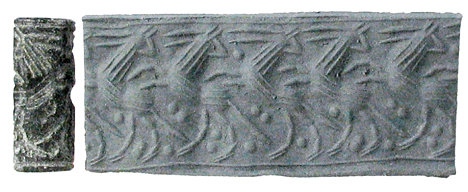Judges is About Needing God as King, not Man


 Abraham’s Bookends
Abraham’s BookendsIn his book Why Baptize Babies?, Mark Horne writes:
The apostle Peter makes it clear that God’s Covenant still involves the promise to our children:
For the promise is for you and your children and for all who are far off, everyone whom the Lord our God calls to himself.” (Acts 2:39) We who now profess Christ are among those who are “far off,” whom the Lord has called to himself. Just like those to whom Peter first preached, the promise is not only for us but for our children as well. (p. 23)
So much that has been written about baptism is nebulous and confused. My friend Mark’s short book, however, is an excellent summary of this doctrine. Having his points honed into silver bullets makes them easier to discern, and easier to deflect!
![]() by Mark Horne (reposted with permission)
by Mark Horne (reposted with permission)
“What we need to ask ourselves is, why might a righteous and sinless human need to ‘die’ in order to “live”?”
In basic Evangelical Christian teaching, “sanctification” is a process in which a believer, by the working of God’s Spirit, is able more and more to put off sin and live in more complete obedience to God. That way of summarizing the teaching can be misleading since perception is not always the same as reality. After all, one part of the process might involve discovering hidden sin, which means one might, at times in one’s life, be sanctified by (apparently) becoming more sinful, not less. Furthermore (or perhaps the same issue), new stages in life can bring new and more powerful temptations which one might initially fail to resist.
But another problem with “sanctification” as understood as the basic process and calling in the Christian life, is that Evangelical teaching cannot, on this definition, allow that Jesus, from the time he was born to the time he died, went through sanctification.

Doug Wilson sees evidence for the classification of “Covenant children” in 1 Corinthians 7:14.
“For the unbelieving husband is sanctified by the wife, and the unbelieving wife is sanctified by the husband: else were your children unclean; but now are they holy” (1 Cor. 7:14).
The Corinthians had wanted to know whether unbelief on the part of a spouse was in itself grounds for divorce. Paul has replied no, provided that the unbelieving partner is pleased to be together with the Christian in a marriage as biblically defined. If the only thing that is wrong is the spouse’s failure to believe in Christ, then the couple should still remain together.
 “It takes on form like clay under a seal…” (Job 38:14)
“It takes on form like clay under a seal…” (Job 38:14)
Read The Secret before you read this post.
Typology is the science of recognizing the shape of one thing stamped upon, into, something else. In itself, this is not an exact science by any means, and is prone to abuse. Thankfully, the Bible doesn’t simply give us isolated “indentations”; it gives them to us in sequences. Sequences of ideas, like sequences of musical notes, are exact, even if our identification of them is not yet as refined as we would like.
[This post has been refined and included in Sweet Counsel: Essays to Brighten the Eyes.]
Continue reading
From Mark Horne’s blog:
So if you consider me your partner, receive him as you would receive me. If he has wronged you at all, or owes you anything, charge that to my account. I, Paul, write this with my own hand: I will repay it—to say nothing of your owing me even your own self.
So writes Paul to Philemon about his runaway slave, Onesimus.
Notice the exchange that takes place.